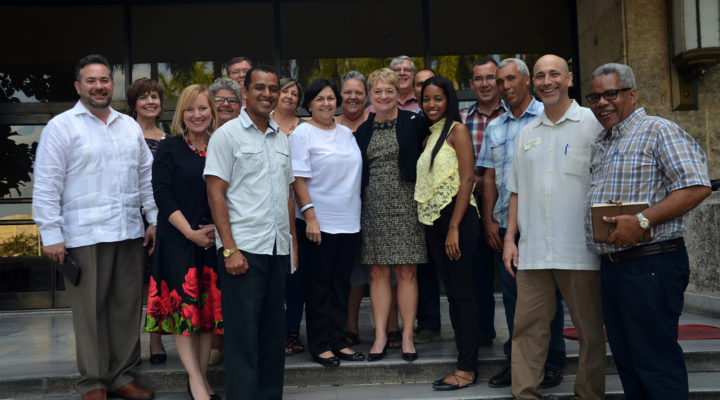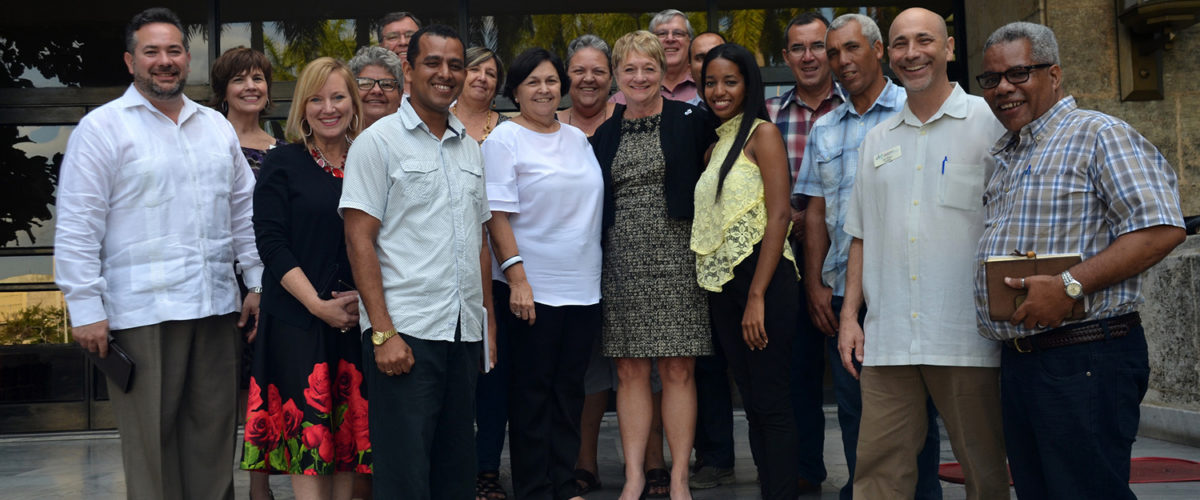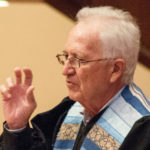Donald Trump’s decision to negate the normalization of U.S.-Cuban relations may further American isolationism, but it will not sever the relationships between churches in the two countries.
The “prophetic role of religious partnerships … will continue their fight for normalized relations,” Cuban minister Francisco Rodes wrote in a June 23 column for Baptist News Global.
Rodes is the retired pastor of First Baptist Church of Matanzas and a professor at the Evangelical Theological Seminary in Matanzas. He is a national leader in prison chaplaincy.
Rodes spoke with Baptist News Global Thursday in Atlanta, where he attended the Cooperative Baptist Fellowship General Assembly.
How did you become involved with the CBF?
I was the first president of the Fraternity of Baptist Churches of Cuba. And it was at a Baptist World Alliance meeting where I had a conversation with [former CBF Executive Coordinator Daniel] Vestal. This was probably in 2001. It was the same meeting when the Southern Baptist Convention quit the alliance. Vestal and I had a good conversation and we said that our churches share … the same roots — that we had been Southern Baptists. From that time we have had church contacts. But more recently … we are more officially linked between CBF and the fraternity of Cuban Baptist churches.
What drew you to that relationship?
In the fraternity there are 43 or 44 churches — some are more liberal, and some more conservative. But most of the churches are very similar to CBF and I think that could be a good collaboration. We also have a lot of talents to offer. So we are looking for some kind of assistance between our bodies.
Is this your first General Assembly?
It is the first one.
Why did you come this year?
We were here visiting our family. But we have a presence here. The president of our fraternity is here. Also, I am the national coordinator of Cuban Evangelical Prison Chaplaincy. We are also interested in being in touch with the prison chaplain ministry in this country.
What is most painful for Cubans about Trump’s reversal of U.S. policy in Cuba?
We were looking forward to all the steps in the process to the ending of the embargo. Now I feel like the embargo will last longer.
But churches will not be hurt?
I don’t think there will be any affect in the relationship between churches or in the case of religious people coming and going. … That’s good news.
What is the state of churches in Cuba?
In Cuba there is a mix of different religions. The most popular is Santeria, which is a mix of Catholicism and African cults. And I think that probably we have 5 percent of the population attending churches. The evangelicals are growing, especially Pentecostals and those kind of churches.
And how are Baptists doing?
The Baptist churches are growing too. And I think probably there are about 100,000 Baptists in Cuba. … But it is sad to say that the Baptists mostly are extremely conservative. They are afraid of ecumenical relationships, they don’t have any social work. They are so interested in growing the institutions that they don’t have energy to dedicate to social or medical relationships or theological development. This is something that the fraternity is trying to address through publications and workshops.
It sounds similar in some ways to the church in the U.S.
It’s true. Evangelicals are growing but the spirituality is very superficial: too much emotion, too much emphasis on the numbers and on power. … But there are churches in Cuba … that have these kind of centers that promote culture and social growth and seek to develop the skills of the people in arts and music.



